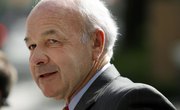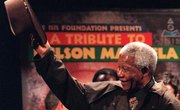An organization is a complex set of offices and functions under unified rule, which is meant to perform one or many general functions. It can be a government, corporation or an informal community group. Organizations are made up of individuals, each, presumably, having free will. Therefore, in any discussion of organizational life, the individual and the use of his freedom must be understood as a major limitation in the organization.
Decisions
It is common to speak as if organizations "act." "The government of Iran declared war." Of course, the government is not a person that has willed to declare war. "IBM announced mass layoffs." This was a decision by a group of powerful, self-interested individuals making the decision to lay off. Therefore, using an organizational name when describing an action is problematic, if not entirely misleading. Organizations function because of the interest of the individuals within them.
Culture
It is possible to speak of organizations as "actors" when dealing with a corporate or organizational culture. Such a culture can constrain actions as well as shape them. It is a power over and above individuals, shaping them as they function within their specific organizational tasks. Even here, phrases like "Toyota will improve its brake pads" might speak to a specific Japanese interest in mechanical perfection, or to the fact that major executives want Toyota's reputation to improve in America. Therefore, two major limitations on organizations are the individual, as well as the corporate culture. This latter, in turn, can be shaped by the interests of the subgroups — such as executives or shareholders — that dominate the organization.
External and Internal Limits
An economic organization can be a firm, bank or union. These are economic actors due to their leadership, culture and pressures from customers or members. These might be considered "actors" with more or less autonomous status. The market constrains the actions of such institutions. A firm can only produce what is demanded and what will sell. A firm can only produce what its current labor force and productive capital can create. An economic organization is thus constrained both by internal factors — its own previous decisions — and external factors such as the market or government regulation.
Structure
An organization of whatever type can be limited by other factors, such as transitions in leadership. The creation of a chaotic command structure given resignations, firings, or rapid promotion and demotion can limit a firm's effectiveness. It can create cynicism that further limits the action and effectiveness of the organization. Organizations function because of their leadership, mission and purpose. If any of these things begin to break down, the organization itself cannot function. These organizations are limited by their own purpose and sense of identity. If an organization is dependent on computers for its daily functioning, a virus or breakdown can paralyze it. Even more, if an organization is dependent on the presence of powerful or charismatic leaders, their absence can bring things to a halt. In other words, the very organizational concept of the group serves as a limitation to how and why it functions.
Related Articles
References
- The Handbook of Strategic Management; Applications and Limitations of Complexity Theory in Organization: Theory and Strategy; David Levy; 2000
- Autonomous Cooperation and Control Logistics: Contributions and Limitations - Theoretical and Practical Perspectives; Bernd Scholz-Reiter, Michael Hülsmann, Katja Windt; 2011
Writer Bio
Walter Johnson has more than 20 years experience as a professional writer. After serving in the United Stated Marine Corps for several years, he received his doctorate in history from the University of Nebraska. Focused on economic topics, Johnson reads Russian and has published in journals such as “The Salisbury Review,” "The Constantian" and “The Social Justice Review."











